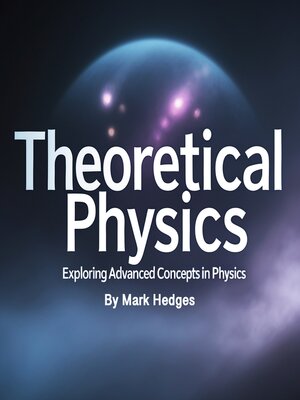
Sign up to save your library
With an OverDrive account, you can save your favorite libraries for at-a-glance information about availability. Find out more about OverDrive accounts.
Find this title in Libby, the library reading app by OverDrive.



Search for a digital library with this title
Title found at these libraries:
| Library Name | Distance |
|---|---|
| Loading... |
Theoretical physics is the foundation of our understanding of the universe, providing the mathematical framework that describes physical laws and fundamental interactions. Unlike experimental physics, which relies on observation and experimentation, theoretical physics develops models and equations that predict and explain phenomena, often extending beyond what can currently be tested. From Newton's laws to Einstein's theories and quantum mechanics, the field has evolved to encompass a vast range of concepts that shape modern science.
Mathematics plays a crucial role in theoretical physics, serving as the language through which physical principles are expressed. Equations such as Newton's second law, Maxwell's equations, and Schrödinger's equation provide precise descriptions of motion, electromagnetism, and quantum mechanics, respectively. The ability to abstractly represent nature through mathematical formalisms allows physicists to derive new predictions and unify disparate concepts. For example, Einstein's field equations of general relativity describe how mass and energy curve spacetime, leading to predictions of gravitational waves and black holes, both of which were later confirmed through experiments.
A key principle in theoretical physics is symmetry, which governs many of the fundamental laws of nature. Symmetries in physical systems often correspond to conservation laws, a relationship formalized by Noether's theorem. For instance, the symmetry of time invariance leads to the conservation of energy, while spatial symmetry results in the conservation of momentum.







